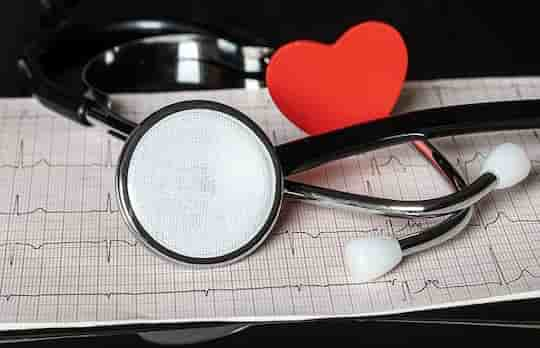People lacking this vitamin probably also have high blood pressure and heart disease.
A deficiency in vitamin D is linked to a doubling in the risk of heart disease.
After exposure to sunlight, vitamin D is produced in the skin and converted to calcifediol in the liver and then converted to calcitriol in the kidney.
Calcitriol (1,25-dihydroxyvitamin D) is an active form of vitamin D affecting the immune system, bone growth, the production of adrenaline, noradrenaline, dopamine, and serotonin.
A study suggests that calcitriol can also influence cardiovascular health through its effects on other systems, including the immune system.
In this research, participants with low levels of vitamin D appeared to have higher blood pressure and heart disease risk compared to people with adequate blood levels of vitamin D.
The results showed that people with the lowest levels of vitamin D were twice as likely to suffer from cardiovascular disease than those within the normal range.
Cardiovascular disease (CVD) is a major cause of death and disability, killing 7.9 million people around the world each year.
Over a billion people globally have low levels of vitamin D.
The best test to determine vitamin D status is measuring the serum concentrations of 5-hydroxyvitamin D (25(OH)D).
To investigate the association between serum 25(OH)D levels and CVD risk, the research team analysed UK Biobank data on over half-a-million participants.
They found that the risk of high blood pressure and heart disease steeply decreased where the serum 25(OH)D level was around 50 nmol/L.
Over 55 percent of participants had serum levels of < 50 nmol/L and 13 percent were deficient with levels below 25 nmol/L.
The number of people with serum levels less than 50 nmol/L has been estimated to be 37 percent for Canada, 24 percent for USA, and 23 percent for Australia.
Professor Elina Hyppönen, the study’s leader, said:
“Severe deficiency is relatively rare, but in settings where this does occur it is very important to be proactive and avoid negative effects on the heart.
For example, deficiency can be a problem for people living in residential care who may have limited exposure to sun.”
Vitamin D can be found in some foods but this amount is not enough.
Professor Hyppönen explained:
“We can also get vitamin D from food, including oily fish, eggs and fortified foods and drinks.
This said, food is unfortunately a relatively poor source of vitamin D, and even an otherwise healthy diet does not typically contain enough.
If we don’t get any vitamin D through the sun, this is one of the rare nutrients for which we sometimes need to take a daily supplement to keep up with the requirements.
Understanding the connection between low levels of vitamin D and CVD is especially important, given the global prevalence of this deadly condition.
Our results are exciting as they suggest that if we can raise levels of vitamin D within norms, we should also affect rates of CVD.
In our study population, by increasing vitamin D-deficient individuals to levels of at least 50 nmol/L, we estimate that 4.4 percent of all CVD cases could have been prevented.”
The study was published in European Heart Journal (Zhou et al., 2021).

